|
What We
Charge
At The Attorney Times we only
charge $1000.00 down to start
the case. The total fee is only $2000.00 with the discount card
the other $1000.00 you can make in payments. We only recommend
premier proven attorneys for your case. |
|
|
|
|
|
Average
Attorney Fees
Attorney fees typically range from $100
to $300 per hour based on experience and specialization.
Costs start at $100 per hour for new attorneys,
but standard attorney fees for an expert lawyer to handle a
complex case can average $225 an hour or more. |
|
|
|
|
|
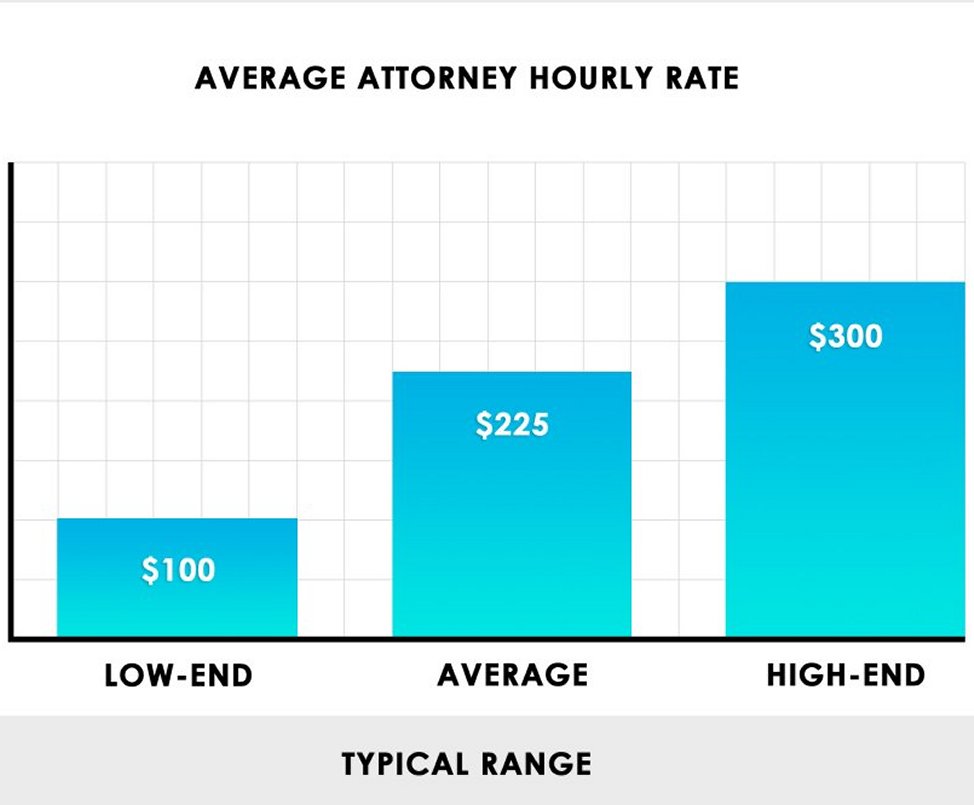
|
|
|
|
|
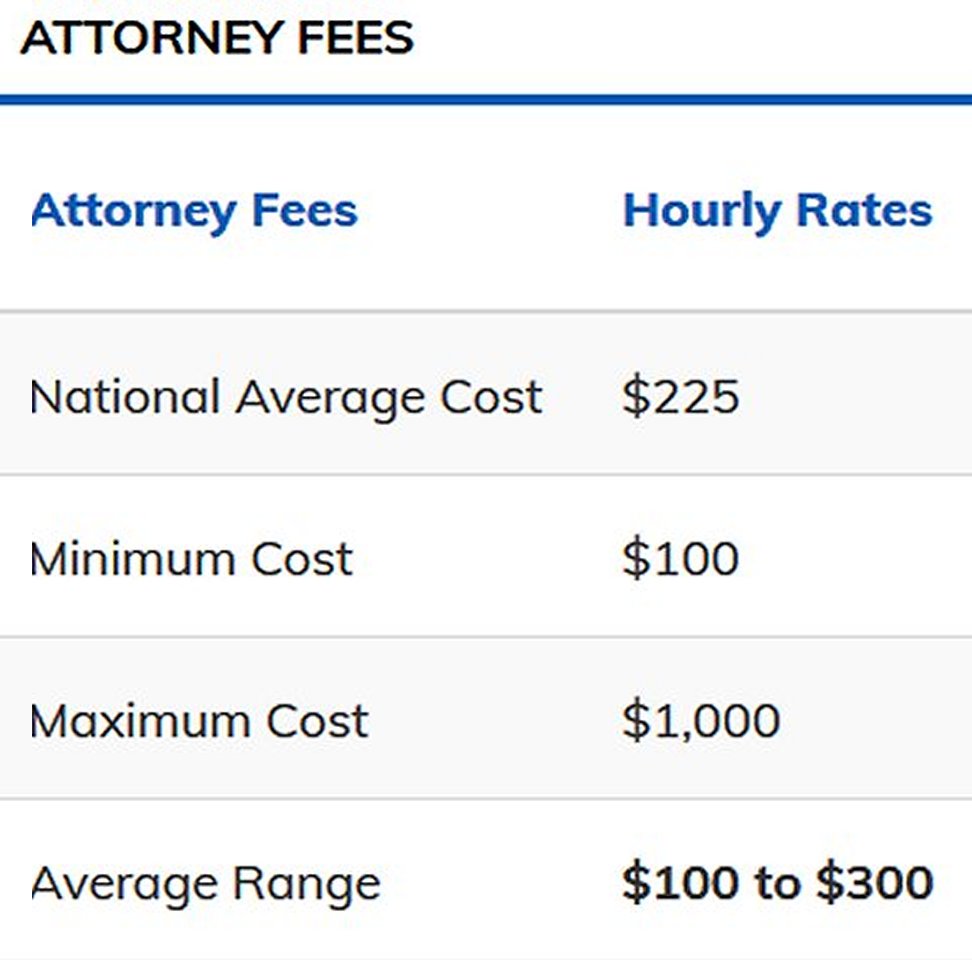
|
|
|
|
|
How Much Do Attorneys
Charge?
When you start comparing attorneys,
pay attention to the types of lawyers that you're comparing.
Typical fees for a personal injury attorney will be different from
an immigration attorney or a divorce attorney. Every field of law
has its own set of rules and best practices, so you need to make
sure you're dealing with attorneys with specific experience in
your type of case. |
|
|
|
|
|
Attorney Hourly Rates
Attorney's hourly fees range
between $100 and $400 depending on their
experience and the type of case. Attorneys in small towns or
lawyers in training cost $100 to $200 per hour,
while experienced lawyers in metropolitan areas charge $200
to $400 hourly. Higher hourly rates reflect their
qualifications and ranking within their law firm. |
|
|
|
|
|
It is a common practice
for a lawyer to charge different rates for different types of
work. For example, a court appearance often costs more than legal
research time. Besides that, the same younger paralegals who may
do the majority of research receive lower wages than senior
associates who conduct interviews and present the case before a
judge. |
|
|
|
|
|
A law firm is unlikely
to give you an accurate quote until after they've finished working
on the case. It's hard to predict how long the procedure can take
and which aspects of the case will take more time. |
|
|
|
|
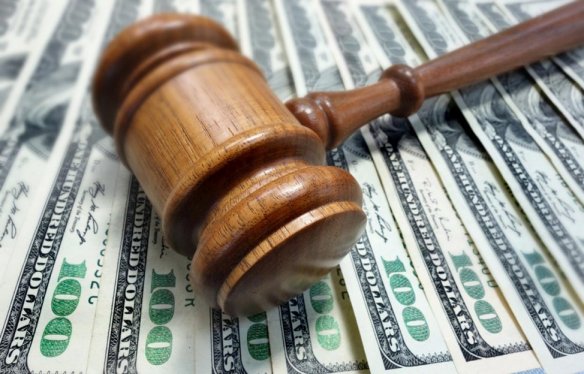 |
|
|
|
|
Flat-Rate
Attorney Fees
You'll often find attorneys willing
to charge all-inclusive, flat-rate fees for simple projects
ranging from $700 for an uncontested divorce to $1,000
for writing a prenup. Hiring a lawyer on a flat-rate basis to
create a simple will costs $300, while a will for
more complex estates may be $1,200 to write. |
|
|
|
|
|
What does a flat
fee mean?
At first glance, flat-rate legal
services seem to be a complete package deal so that you don't pay
more for your case than is necessary. However, if you don't comply
with every single term listed on the flat fee contract, then your
attorney still has the right to bill you for additional costs that
may come up in your case. For instance, a flat fee lawyer working
on an uncontested divorce case may still charge you for all court
appearances. Plus, they may also only offer the flat fee if you
have no property issues and no child support issues either. |
|
|
|
|
|
Standard
Attorney Fees
Standard attorney fees can range
from $250 an hour to $600 an
hour, but their rates vary beyond this estimate based on their
location and specialty. Standard legal fees for criminal cases and
minor misdemeanors can cost you around $1,000,
while complex divorce cases with custody battles can cost $5,000
or more. Standard lawyer percentage fees will vary
according to the terms of your written agreement. |
|
|
|
|
|
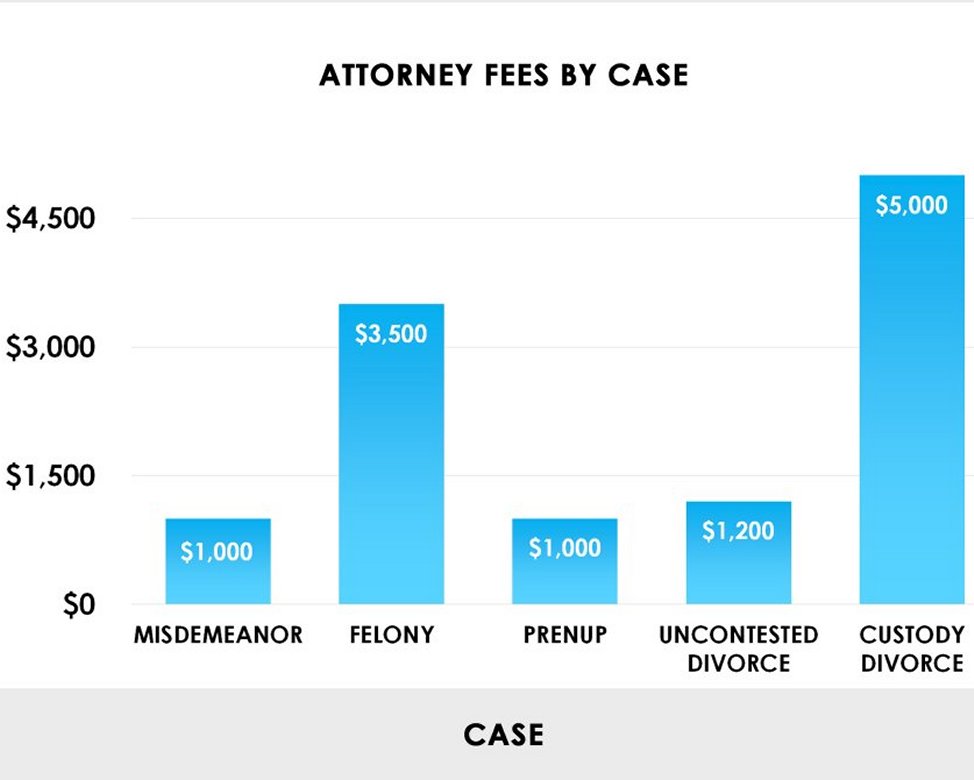
|
|
|
|
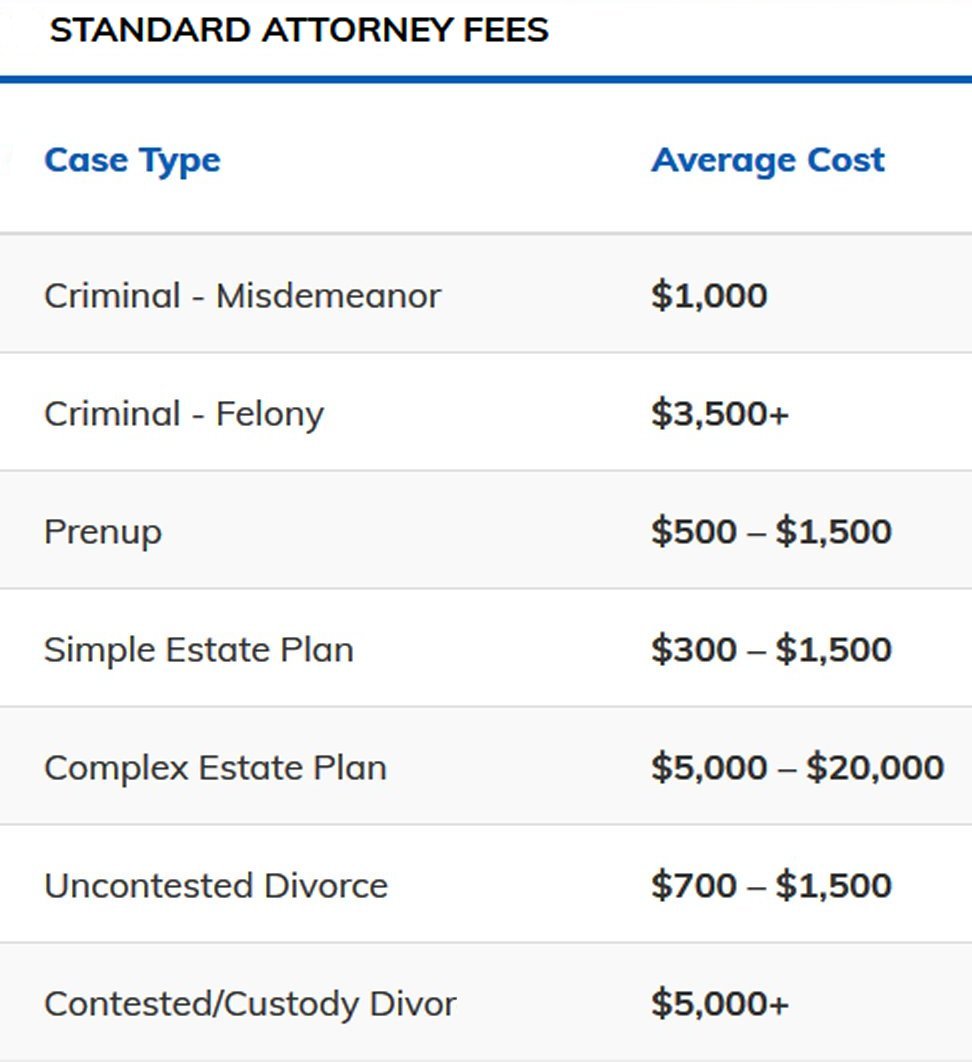 |
|
|
|
|
Attorney
Consultation Fee
In some law firms, the initial
consultation for legal advice is free. You won't find a fixed
average rate, but you may see discounted attorney consultation
fees of $50 to $100 for the first hour. In most
cases, you'll need to pay a legal consultation fee before they
give you personal advice since every case has so many variables. |
|
|
|
|
|
Attorney
Retainer Fee
The typical retainer fee for
attorneys could be anywhere from $2,000 to $100,000
which depends on what kind of case you have and who you select as
your lawyer. An attorney retainer fee can be the initial down
payment toward your total bill, or it can also be a type of
reservation fee to reserve an attorney exclusively for your
services within a certain period of time. |
|
|
|
|
|
A retainer fee is
supposed to provide a guarantee of service from the lawyer you've
hired. Every retainer agreement is unique to each law firm, so
never think they all include the same things. These fees are
generally nonrefundable, so make sure you understand your
agreement before you sign. |
|
|
|
|
|
Contrary to rumors, a
lawyer who charges a retainer fee is not necessarily better than a
lawyer without a retainer. Sometimes lawyers may charge a retainer
if they find themselves in high demand. Other lawyers who work
more quickly and efficiently may see no need for charging you a
retainer fee. Call different lawyers in your area to see if
retainers are standard practice for your particular case. |
|
|
|
|
|
Attorney
Contingency Fee
An attorney contingency fee is only
typical in a case where you're claiming money due to circumstances
like personal injury or workers' compensation. You're likely to
see attorney percentage fees in these situations to average around
a third of the total legal settlement fees paid
to the client. |
|
|
|
|
|
If you lose in court,
you may still have to pay for the lawyer's expenses. Many cases
such as those involving child custody or criminal charges are not
eligible for a contingency fee structure. |
|
|
|
|
|
Statutory
Fee
A statutory fee is a payment
determined by the court or laws which applies to your case. You'll
encounter a fixed statutory fee when dealing with probate or
bankruptcy, for example. |
|
|
|
|
|
Legal Aid
Billing Rates
If you appeal to a legal aid agency
for representation, then they may help you for free if they take
the case pro bono. You could get legal assistance for less
than $100 hourly. Legal aid billing rates are more
affordable if the law firm has a sliding-scale payment system so
that people only pay for what they can reasonably afford. Seeking
out fixed fees in legal aid agencies is the best option for those
in desperate need who cannot otherwise pay for a lawyer. |
|
|
|
|
|
Attorney
Fee Agreement
Avoid disagreements with your
attorney about how much you owe by taking the time to review your
attorney fee agreement carefully. You may also hear this document
called a retainer agreement, lawyer fee agreement or
representation agreement. Either way, most states require evidence
of a written fee agreement when handling any disputes between
clients and lawyers. You must have written evidence of what you
agreed to pay for anyone to hold you accountable for what you have
or have not spent. |
|
|
|
|
|
Attorney
Fee Contract
Make sure that your contract
includes the details of:
Contract – The
agreement should list the total amount of any retainer deposit
that you pay upfront. It should also state when you need to pay
additional fees, if necessary.
Hourly Fee – Don't
look only for the hourly rate of your lawyer on the agreement.
Make sure you also see a description of the different hourly rates
for each person who might contribute to your case. Ask for your
payment schedule. Ask if you get a discount for early payment or
if you pay penalties for late fees.
Contingency Fee –
In a contingency case, the lawyer profits by the percentage they
earn upon winning the case. The lawyer's contingency percentage
and the payment-collection process should appear clearly outlined
in your agreement. Sometimes, a lawyer will not collect any fees
from you if they lose a contingency case, such as in personal
injury disputes. In other situations, they may demand payment from
their client only if they lose the case.
Costs of Suit –
Check for clear terms to describe who pays for all of the
different litigation costs involved. You should anticipate
possible charges for court appearances and filing fees, hiring a
private investigator, the cost of bringing in an expert witness,
costs for officially serving and delivering legal documents, and
travel fees. |
|
|
 |
|
|
|
|
What do
Attorney Fees Cover?
When hiring your
attorney, ask for a detailed written estimate of any expenses or
additional costs. They may itemize each expense out for you or
lump their fees all together under different categories of work.
Lawyers may bill you for:
Advice
Research
Resources
Time spent by paralegals who research the case background
Court filing fees
Traveling expenses
Delivery charges
Photocopying documents
Phone consultations |
|
|
|
|
|
Frequently
Asked Questions
How Much Does It
Cost To Talk
To A Lawyer?
Every lawyer has their own fee
structure and initial-consultation policies. Your first meeting
might be free, or you may have to pay hourly even from the first
meeting. Standard rates in a mid-sized city may be $100 to
$400 an hour or more. Pricing depends on factors like
their specialty, experience, current workload and location.
If you get your first meeting with
a lawyer for free, then they'll probably only answer questions
about the law itself. They're not likely to advise on your
particular situation until they take on your case first to learn
all the details of your problem.
How Much Do Lawyers
Charge
For Copies?
Ordinary bulk-photocopying rates
are anywhere from 3 to 25 cents per page-side for
black and white documents, and color copies can be up to 99
cents per side. Lawyers tend to charge more for
photocopying than your local copy store, so try to make copies
yourself.
It's rare to find a lawyer whose
contract with you includes free copies of all the documents you
may want to keep for reference. You should expect to pay lawyers a
reasonable fee for bulk-copying.
However, the California Rules of
Professional Conduct states that attorneys must return all the
client's original papers and property to the client at the end of
the case or term of representation. The complete original file is
the client's property. Only if you're requesting a copy of a file
that's not originally yours should you pay a photocopying fee.
How Does A Retainer
Fee Work For
An Attorney?
In practice, attorneys are likely
to calculate their retainer fees based on how much work they
expect to do within a month. In other cases, they may bill you for
the total hours they plan to work on your case from start to
finish.
No matter how they calculate the
retainer fee, they can bill you for every minute that they spend
on your case, including every phone call made or letter written.
Since most retainer fees are nonrefundable, you probably won't get
any credit next month if you don't use the full amount of your
retainer for the current month. You'll almost always have to pay
additional fees if your case takes up more time than you paid for
with the retainer fee. |
|
|
|
|
|
|
|